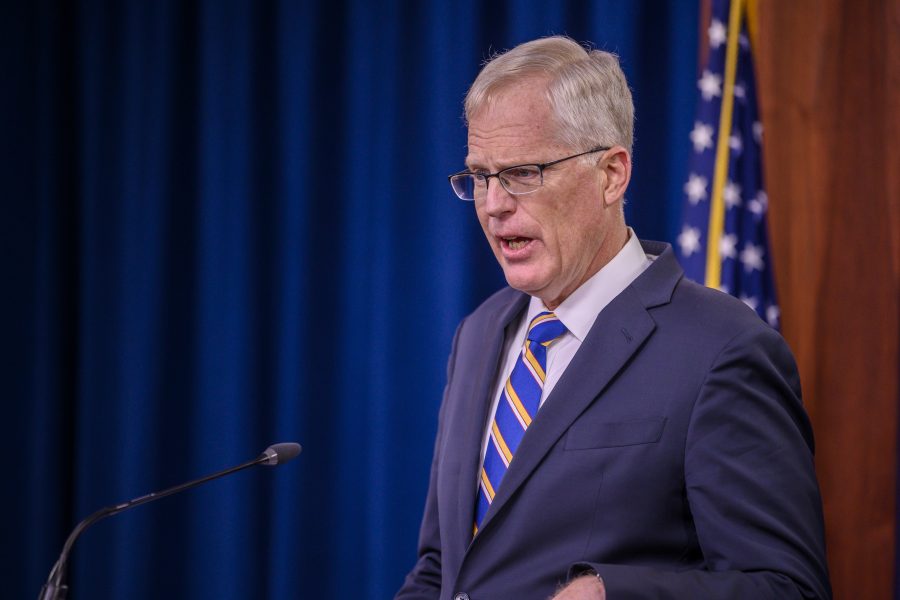The Jan. 6 violence at the Capitol building has prompted senior military officials, including the Acting Defense Secretary, to reiterate the Pentagon’s commitment to a peaceful transfer of power and to address concerns among troops.
Acting Defense Secretary Christopher C. Miller, in a statement released Jan. 7, said the mob attacking the Capitol “was reprehensible and contrary to the tenets of the United States Constitution.” He praised the Guard personnel who responded with “honor, integrity, and alacrity.”
“Our Republic may have been disrupted yesterday, but the resolve of our legislators to conduct the people’s business did not waver,” Miller said. “Due to their efforts, supported by local and federal law enforcement and the National Guard, the attempts of those who tried to stop our government from functioning failed.”
Miller said that he and the Defense Department “will execute the time-honored peaceful transition of power” to president-elect Joseph R. Biden on Jan. 20.
Earlier on Jan. 7, U.S. Africa Command boss Gen. Stephen J. Townsend and the command’s senior enlisted leader Sgt. Maj. Richard D. Thresher became the first senior military officials to address the situation.
“Some of you may be concerned about the events we saw unfold back home in the U.S. Capitol yesterday,” the leaders wrote in a statement to AFRICOM personnel.
“America has withstood much greater and graver challenges in the past, our Constitution remains our bedrock, and our system of government is strong, resilient, and will prevail,” they wrote. “U.S. Africa Command remains focused on our mission to protect and advance America’s security and interest in Africa. The American people expect, and need, us to stay steady and keep our clear eyes on our duty—and we will.”
In a thread on Twitter, Air Force Lt. Gen. S. Clinton Hinote, the deputy chief of staff for strategy, integration, and requirements, related the situation to his experience on Sept. 11, 2001. That day he was flying in a stealth fighter when the attack occurred, and said he felt numbness and depression. He said he feels that again, and the current situation is worse.
“On 9/11, we faced a threat of terrorism that was largely external, with some internal aspects. Today, our internal division is our biggest threat, and it is being exacerbated skillfully by state and non-state actors that want to see us weakened & discredited,” Hinote wrote. “Despite some indications, we were largely surprised on 9/11. We cannot say that now. The indications that foretold yesterday’s violence have been manifest for a long time. Yet we still couldn’t stop it.
“9/11 was horrible, but it was never a threat to our democratic republic. Only we can be the authors of our last chapter, and we are well on our way. To be clear: It is my personal opinion that we are in danger of losing our republic, real danger. After 9/11, we had a short period of time where we could come together as one, and we did. It doesn’t seem likely that we can do that now. Yet we must. The test of leadership in our generation is now sharply focused: Will we rise above our personal interests & political divisions to find a way to rise above? We have to, or this experiment will fail. I’m going to try.”
